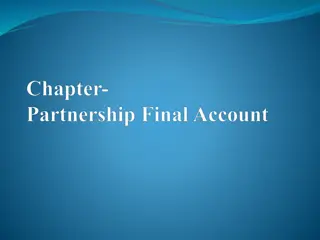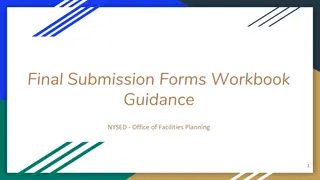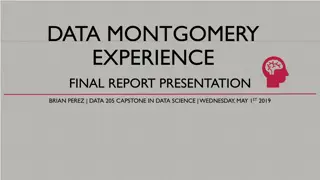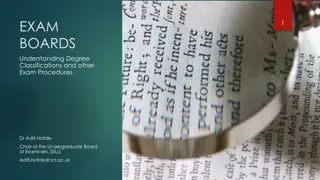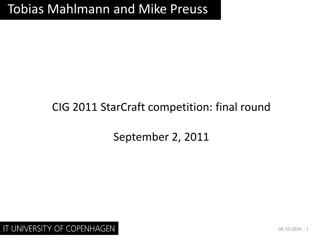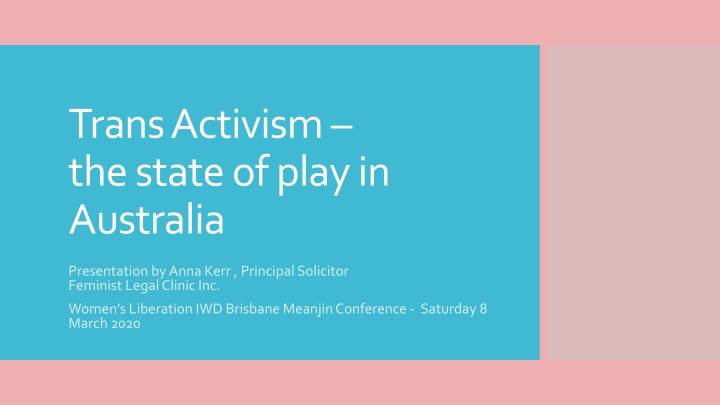
Trans Activism and Legal Landscape in Australia
Explore the state of trans activism in Australia through a presentation by Anna Kerr, addressing legal aspects, gender recognition laws, and discrimination provisions in various jurisdictions. Learn about the support for gender diversity, challenges faced, and the complexities of law surrounding gender identity.
Download Presentation

Please find below an Image/Link to download the presentation.
The content on the website is provided AS IS for your information and personal use only. It may not be sold, licensed, or shared on other websites without obtaining consent from the author. If you encounter any issues during the download, it is possible that the publisher has removed the file from their server.
You are allowed to download the files provided on this website for personal or commercial use, subject to the condition that they are used lawfully. All files are the property of their respective owners.
The content on the website is provided AS IS for your information and personal use only. It may not be sold, licensed, or shared on other websites without obtaining consent from the author.
E N D
Presentation Transcript
Trans Activism the state of play in Australia Presentation by Anna Kerr , Principal Solicitor Feminist Legal Clinic Inc. Women s Liberation IWD Brisbane MeanjinConference - Saturday 8 March 2020
Feminist Legal Clinic Inc. condemns the use of threats, violence or harassment of any person. We oppose the expression of hatred, serious contempt or severe ridicule of a person because they are transgender . We support non-conformity with gender stereotypes and common courtesy to all individuals . We advocate compliance with the law. This presentation is provided in good faith for purposes in the public interest, including discussion and debate about current changes to law and policy in relation to recognition of gender identity and their impact on women s services, spaces and opportunities. This information does not substitute for legal advice. The laws are complex, changing rapidly and vary in every state. This presentation cannot attempt to provide comprehensive coverage of the legal situation. No liability is accepted for inaccuracies contained within this content. Disclaimer
Jurisdiction Date of Law Surgery Required QLD 2003 Yes Legal gender recognition: change of sex on birth certificates NSW 1996 Yes ACT 2014 No VIC 2020 No (from May 2020) TAS 2019 No SA 2016 No WA 2000 No, but HT NT 2018 No
Commonwealth - Sex Discrimination Act 1984, s5B Australian Capital Territory Discrimination Act 1991, , s67A New South Wales Anti-Discrimination Act 1977, Part 3A, s38S Relevant Discrimination Legislation Northern Territory Anti-Discrimination Act 1992 Queensland Anti-Discrimination Act 1991, s7, s124A South Australia Equal Opportunity Act 1984, s29(2A) Tasmania Anti-Discrimination Act 1998, s16. (sex not included) Victoria Equal Opportunity Act 2010, s6 Western Australia Equal Opportunity Act 1984, Part IIAA
Jurisdiction Discrimination? Vilification? Federal Gender Identity No NSW Transgender status Yes Gender related Discrimination and Vilification Provisions by State & Territory Vic Gender identity No Qld Gender identity Yes Gender Identity SA No WA Gender History No ACT Gender identity Yes NT No No Tas Gender, Gender Identity No
Discrimination is only unlawful in key areas, typically including: Employment Accommodation Provision of Goods & Services Education Exceptions to Discrimination Provisions There are various exemptions and exceptions that can apply. These vary depending on the jurisdiction but some common exemptions are for : Religious bodies Charities Voluntary organisations Sport Insurance Genuine occupational qualification Special Measures
Generally discrimination involves treating an individual less favourably than a comparator. Under the Sex Discrimination Act discrimination occurs if a person is treated less favourably than a person who has a different gender identity. Western Australia it occurs when: the discriminator treats the gender reassigned person less favourably than . . . a person not thought by the discriminator to have a gender history. In the ACT , Victoria, Tas, Qld discrimination occurs when a person treats another person unfavourably because the other person has a protected attribute (ie: gender identity).. SA - the person treats another unfavourably on the grounds of having a particular gender identity or because of their past sex. In NSW it involves treating a person less favourably on the grounds of being transgender as compared to a person who they do not think is transgender. Whether the person actually is a recognised transgender person is not necessary, but just that they are perceived as such. Gender identity doesn t seem to be mentioned in the NT. Definition of Discrimination what s the comparator? No consistency of language but it is arguable that none of these provisions require that a trans identifying male must be treated as if they were a woman. Less favourably does not mean identically. Indeed identical treatment that ignores differences can constitute discrimination.
An example from Queensland s124A: (1) A person must not, by a public act, incite hatred towards, serious contempt for, or severe ridicule of, a person or group of persons on the ground of the race, religion, sexuality or gender identity of the person or members of the group. (ACT also includes revulsion) (2) Subsection (1) does not make unlawful (a) the publication of a fair report of a public act mentioned in subsection(1) ; or Vilification (b) the publication of material in circumstances in which the publication would be subject to a defence of absolute privilege in proceedings for defamation; or (c) a public act, done reasonably and in good faith, for academic, artistic, scientific or research purposes or for other purposes in the public interest, including public discussion or debate about, and expositions of, any act or matter.
Social media is it where the comments are posted or read? Is misgendering or deadnaming vilification? Considerations in relation to Vilification provisions Are you responsible for the comments by others on your page? Is liking or sharing a comment sufficient? Refrain from offensive or abusive language Don t make comments that could be considered defamatory. In some jurisdictions there are criminal penalites. Know the laws and operate within them. Adopt an academic tone and focus on public interest.
Aside from the Vilification provisions, there are criminal sanctions available: In 2018 in NSW the Crimes Amendment (Publicly Threatening and Inciting Violence) Bill introduced criminal legislation with up to an explicit 3 year term of imprisonment for publicly inciting or threatening violence. Criminal Sanctions Section 474.17 of the Commonwealth Criminal Code Act 1995 makes it an offence to use a carriage service such as the Internet in a manner which reasonable persons would regard as menacing, harassing or offensive. Section 131A of Queensland Anti-Discrimination Act also includes criminal penalties of up to 6 months imprisonment for serious gender identity vilification which threatens physical harm or incites others to do so.
Consent Issues Liability issues? Health Care Situation- transitioning of children Misdiagnosis? Since Re Kelvin there is no need to obtain Family Court approval if: Failure to advise/warn of risk? Informed consent? Child is Gillick competent and consents to Stage 1 &2 Inadequate evidence base for treatment guidelines Doctors agree child is competent TGA? Off label usage of drugs Parents do not object


